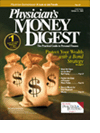Overseas Investing—Part of a Diversified Strategy
Kiplinger's
Based on developments in worldmarkets today, there's no reasonwhy international funds shouldn'tbe part of a well-diversified portfolio.Consider the factors highlighted in arecent article on the subject.Today, European stocks are relativelycheap, while US stocks are not. Moreimportantly, China is experiencing tremendousgrowth, raising both economiesand stock prices throughout Asia.
Fast and Slow Growing
According to the article, China is nowthe hub of world manufacturing.Australia and New Zealand fuel China'sfactories with raw materials, while companieslocated in other Asian nations selltheir goods to China's growing andacquisitive consumer class. The result is aneconomy that is growing 10% a year.
Is China's economy growing too quickly?The Chinese government thinks so,and is trying to slow growth to about 7%a year. However, the article notes that theforces driving China's economic growthare so powerful that any interruptionshould be relatively brief.
In Western Europe, costly labor, pension,and welfare systems are the factorsbehind anemic growth. However, the articlepoints out that Europe is still the homeof many world-class companies, includingBMW and Volkswagen. "These companies,"the article states, "stand to benefitfrom cheap labor from Eastern Europeancountries, eight of which just joined theEuropean Union."
Kiplinger's
Mutual funds offer the easiest way toinvest overseas. Selecting two funds, onefocusing on large companies and anotheron small ones, is the best way to properlydiversify an international portfolio, thearticle suggests.
Exceptional Foreign Funds
Kiplinger's
Artisan International (800-344-1770;www.artix.com) has ranked among thetop 20% of diversified foreign funds overthe past 5 years, according to .The fund has returned an annualized 6%over that time. In comparison, theEurope, Australasian, and Far East index,a broad-based measure of foreign stocks,returned an annualized 1%.
Next on the recommendation list isFidelity Diversified International (800-544-8888; www.fidelity.com), a huge fundthat owns 392 stocks. The article pointsout that Fidelity has 93 analysts assignedto its foreign stock funds, an advantagethat has helped the fund return an annualized8% over the past 3 years, putting itin the top 10% of diversified overseasfunds. Bill Bower, the 37-year-old, Boston-basedfund manager, is particularly bullishon health care, especially some of thebeaten-down stocks of European drugand medical equipment companies.
Another fund to consider is JuliusBaer International Equity (800-435-4659;www.juliusbaer.com). According to themagazine, the fund has gained an annualized11% over the past 5 years, placingit in the top 10% of diversified overseasfunds. Richard Pell and Rudolph-RiadYounes run the fund. "Once the [European]economies improve, you couldhave long, sustainable gains," Younesexplains. The two successful managersare also very bullish on Eastern Europe,saying that the region will benefit fromthe European Union.
Oakmark International (800-625-6275;www.oakmark.com) also comes highlyrecommended. Oakmark has a 9% annualizedreturn over the past 5 years, andhasn't finished below average amongother foreign stock funds in any calendaryear since 1998.
The bottom line:
Kiplinger's
There are many goodopportunities when it comes to investingoverseas. The article notes thatlong-term investors can justify placing afourth of their stock investments in overseasfunds.
